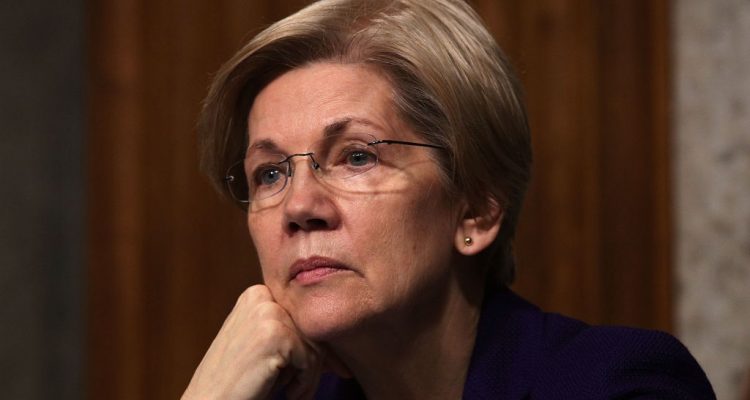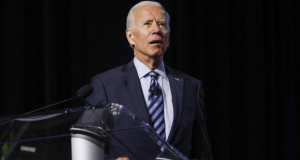How Elizabeth Warren Went from a Regulation Critic to Wall Street Watchdog
An explosive report from CNN’s KFile is exposing Warren’s ideological “evolution” on regulations and taxes – leaving voters to wonder who the real Elizabeth Warren actually is.
August 16, 2019
As Elizabeth Warren rises in the polls, voters will be hard-pressed to reconcile her previous positions on issues with the ones she holds today. In April, Politico highlighted Warren’s previous registration as a Republican, and she’s refused to discuss what was characterized as a “long conservative track record that has not been fully explored.”
The Washington Post also pointed out Warren’s history of charging $675 an hour for legal work on behalf of the same big corporations that she now vilifies on the campaign trail. But an explosive report from CNN’s KFile is exposing Warren’s ideological “evolution” on regulations and taxes – leaving voters to wonder who the real Elizabeth Warren actually is.
How Elizabeth Warren went from a regulation critic to Wall Street watchdog
By: Em Steck and Andrew Kaczynski
Long before Elizabeth Warren became one of the nation’s leading progressive voices, she was an academic who articulated a conservative worldview on the economy.
As a law professor in the 1980s and 1990s, Warren criticized the overabundance of government regulations, calling them “a tax,” and spoke to conservative legal groups like the Federalist Society and the Manhattan Institute, a CNN KFile review of Warren’s academic research, interviews and speeches in this period found.
The material, including Warren’s previously unreported comments on regulations and her association with conservative groups, sheds new light on the early part of her career, before she became actively involved in politics.
Warren rarely discusses her evolution from a “moderate conservative,” as one former colleague described her to CNN, to a leading Democratic presidential candidate proposing ambitious liberal policies. She has said previously that as she established herself as one of the nation’s leading experts in bankruptcy, she came to realize through her research the need for aggressive regulation of the financial industry.
Warren changed her party registration from Republican to Democrat in 1996. Asked about the shift in 2014, she told ABC News that she realized the Republican Party “really stood up for the big financial institutions when the big financial institutions are just hammering middle class American families.”
As a presidential candidate, Warren has proposed regulations to rein in Wall Street and the private equity industry, as well as breaking up the largest tech companies like Facebook and Google. In a speech last year, Warren championed regulations as tools that “permits commerce to flourish,” “keep thieves out of our pockets” and level “the playing field for everyone competing for our business.”
In a statement to CNN, the Warren campaign argued that the Massachusetts Democrat’s views have remained consistent in that she has always been a proponent of large structural changes rather than many smaller regulations.
“Elizabeth has always believed that big, structural rules — rather than dozens of smaller regulatory requirements — protect families better, use regulatory resources more efficiently, and impose lower costs on companies,” Chris Hayden, a spokesperson for the Warren campaign, told CNN in an email.
‘She was a moderate conservative’
During the 1980s and 1990s, Warren worked as a law professor at the University of Houston, the University of Texas, the University of Pennsylvania and Harvard Law School, writing and conducting research on bankruptcy.
“She was a moderate conservative,” Jay Westbrook, a former colleague of Warren’s at the University of Texas Austin, told CNN in an interview.
In 1993, Warren was profiled by the Philadelphia Inquirer, which noted she sounded “like an entrepreneur” in arguing the government had too much regulation.
“Regulations have stretched and grown beyond all imagination,” she told the Inquirer. “And regulations are a tax, as real as reaching into your pocket and taking 33 percent for the IRS.
“The biggest part of government — regulation — is not even taught in law school,” she added.
Warren occasionally appeared at conferences and on panels for conservative groups such as the Manhattan Institute and a 1991 panel at The Federalist Society’s National Lawyers Convention on “Socialization of Risk: Bankruptcy Law and Financial Institutions.” KFile obtained copies of Warren’s speeches from the groups.
In her speech to the Federalist Society, a judicial organization that boasts membership of several conservative Supreme Court justices, Warren argued in favor of the federal bankruptcy system because it kept losses in the private sector and away from being a “socialized loss.” Warren predicted that “retired employees’ expectations” would be “the next big” cause of companies’ bankruptcies…
Keep tabs on the Democrats. Sign up for news.
Keep tabs on the Democrats. Sign up for news.






